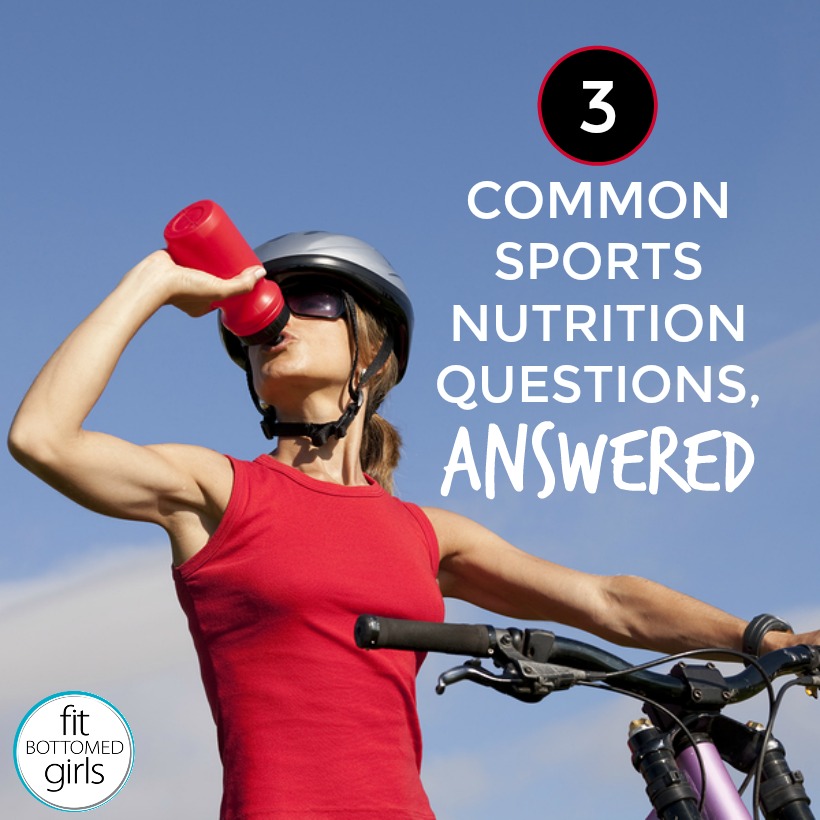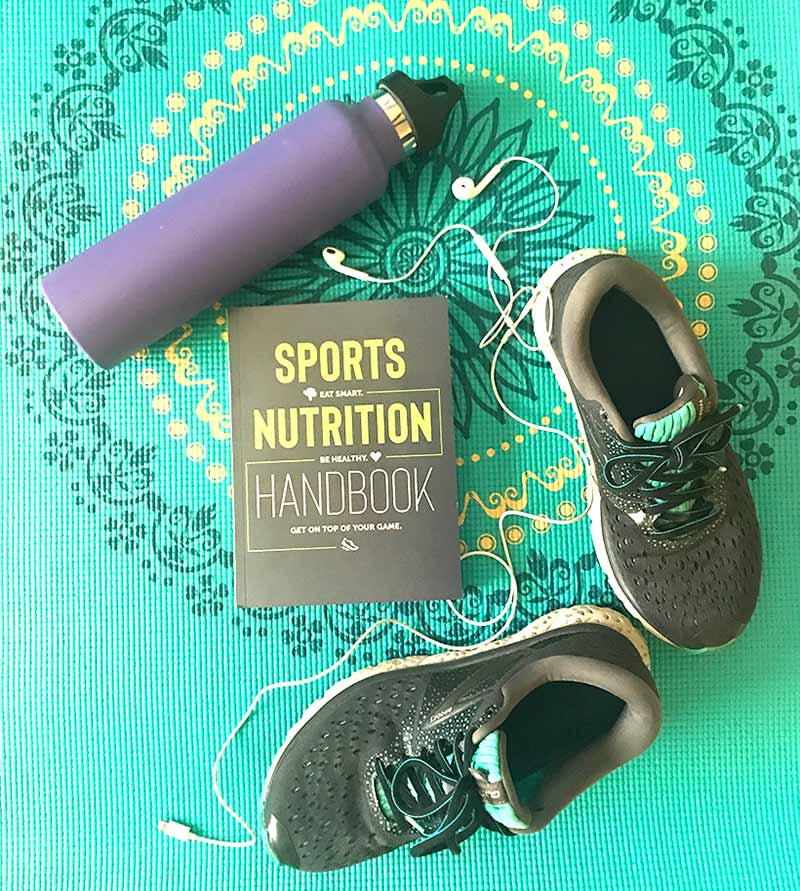3 Common Sports Nutrition Questions, Answered

When I wander into the kitchen for a snack these days, the questions running through my mind tend to be of the, “I wonder if that Greek yogurt I bought has turned,” variety. But, when you’re in a serious training cycle and you’re focusing on food as fuel that helps you perform at your highest level, your questions tend to get a little deeper.
And those are just the questions being answered in the new Sports Nutrition Handbook by Justyna Mizera and Krzysztof Mizera. While the answers and explanations are backed with science, they’re explained in a straightforward manner that you don’t need a degree to understand. See for yourself below, where they’ve provided us with experts from the book showing answers to three of the most commonly asked sports nutrition questions around.

Q: Why did I bonk (or hit the wall) in my marathon?
Many long-distance runners have struggled with a very unpleasant feeling that takes place anywhere between 18 and 22 miles. They call it “hitting the wall.” They suddenly feel so exhausted that many of them are unable to continue at all. Why does this happen?
Runners arrive at 18 to 22 miles after approximately three hours of running at a moderate pace. This is the moment when their glycogen supply ends. Only fats are at their disposal now (not counting proteins, which are not usually used as a source of energy), but the energy produced from fat metabolism is delivered to the muscles much more slowly than the energy from carbohydrates. A runner doesn’t want to slow down significantly — he wants to continue at pace or even accelerate because the finish line is just a few miles away. But, lacking sufficient fuel, the racer is unable to keep up the pace and suddenly hits the wall. This is why fueling during a long run is so important.
If the runner continues his effort with the same intensity and doesn’t take on more carbs, the body must use additional energy from the amino acids of muscle proteins. Then comes the increased catabolism (breakdown) of muscles — certainly not what an athlete wants or needs mid-race.
Q: How much water should I drink each day?
The simplest way to calculate water demand is to assume that 1 milliliter of water is needed for every 1 calorie in your diet. For someone with a 2,000-calorie diet, 2 liters of water should be enough. A different method to determine water intake is to drink 300 milliliters for every 10 kilograms of body weight (22 lb). So, someone weighing 80 kilograms (175 lb) should drink about 2,400 milliliters, or 2.4 liters per day. These recommendations exclude the hydration requirements to recover from exercise.
Fluids come from not only water but also other food and drink, such as tea, coffee, fruit and vegetable juices (which are 85–95 percent water), milk and milk drinks (80–90 percent), soups and purees (70–96 percent), and fruits and vegetables (about 90 percent).
Refer to the Recommended Water Intake guidelines to see how much water is recommended according to your body weight.

Total daily water consumption depends on your age, sport, training intensity, environment, and local weather. Use the following guidelines but adjust as needed.
Q: How are fats good for you?
Fats are essential to life and should be a regular part of the diet. Fats, or lipids, are often given a bad name, but they perform several functions that support a healthy body:
- Fats are essential elements of cell membranes.
- Fats surround the internal organs, including the heart, kidneys, and liver.
- Fats have an active role in the transport of vitamins A, D, E, and K, and they also significantly affect the hormonal balance, which is especially important for people as they mature — and also for athletes.
- Fats cover and protect nerve cells in structures called myelin sheaths.
- Fat resources can provide several days’ worth of energy. Someone weighing 175 pounds with 15 percent body fat (about 26 pounds of body fat) is storing about 110,000 calories. In comparison, during a 90-minute workout, you might burn about 1,000 calories. So the fat you have is a virtually inexhaustible resource.
- Fat is about 60 percent of the brain’s dry weight. Most brain fat is polyunsaturated fatty acids — structures containing two or more bonds, making the molecules pliable. They help maintain the flexibility of neurons, which transmit and receive information and maintain other functions of brain cells.
Contrary to popular belief, fats don’t directly affect the accumulation of excess body fat or cause obesity. Instead, it is the imbalance of energy expenditure versus food consumption (whether in the form of excess fat, protein, or carbohydrates) that causes the deposition of energy reserves in subcutaneous adipose tissue. A balanced and reasonable diet, tailored to the needs of the individual, minimizes the risk of accumulating excess body fat.
What kinds of nutrition questions do you have? They just might be answered in this handy dandy new book, which is available now! —Kristen
